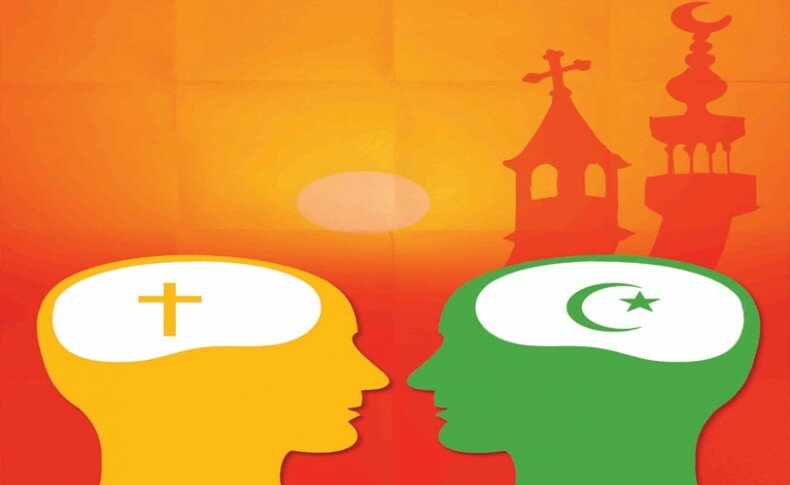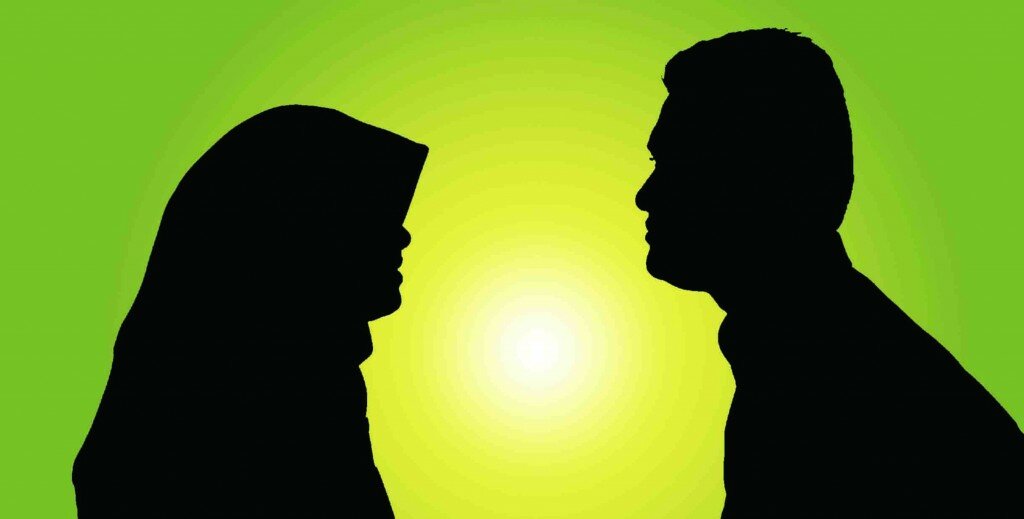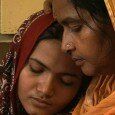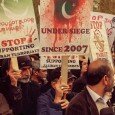By Mirza Khurram Shahzad –
A life in hell
Kalsoom Bibi first met a member of another religion at school, where the only Christian student was mercilessly bullied. She spent years watching her senior, Samuel, being discriminated against and tortured by his school fellows for his minority religion. After secondary school, she met another Christian in almost the same circumstances at a garments factory in a major industrial city of Punjab, where she started working.
When Kalsoom met Yousuf Bhatti, she decided to question him about his faith to find out why all Christians were facing discrimination. Long hours of discussions brought the two close together, and she eventually fell in love and decided to convert.
Thirteen years on, Kalsoom and Yousaf are now married with three children, but have been shunned by their communities, endured death threats and an abduction, all conducted in the name of religious honour in this conservative Islamic country. Marriage out of choice remains a taboo in Pakistan, particularly when it involves a partner outside one’s own clan or faith. While marriages between different members of Abrahamic faiths – including Judaism, Christianity and Islam – is permitted by law, a Muslim woman may not marry a non-Muslim man.
People who choose to convert from Islam can also be charged with blasphemy and face life in prison. The fact that she converted to Christianity means that Kalsoom hides to this day from her family. “My mother died requesting me to leave my Christian husband,” Kalsoom, a short woman in her late twenties with deep brown eyes said, sitting on her bed in a modest two-room house with her husband and children. “Had she known that I myself have been converted to Christianity, she would had died with grief or asked her family to kill me.”
Such unions aren’t officially recorded but human rights activists believe there are thousands of such cases every year. The couple says they now live among a more understanding community that provides them support and respects their choices – but it wasn’t always this way. “The life after marriage was terrible. We went into hiding because the family and community threatened to kill us. We lived in hiding in Islamabad for several months and my son was born during that time,” she said.
Yousuf said the most harrowing incident early on in their marriage happened when he was abducted by four Muslim militants and driven hours out of town to a deserted spot. “They kept me there for several days and asked me why I married my wife.” “They wanted to kill me, but when I told them that she married me of her own will – and that I did not force her into this marriage – they softened and released me after some days,” he added.
Honour killings
Legally, there are no provisions in the criminal code against leaving Islam, though the country’s blasphemy law — which carries a life sentence — has been invoked in recent cases against apostates. But even when members from the minority community convert to Islam, they can still face a backlash.
Sana, a Christian teacher from the same eastern city met and fell in love with cameraman Salman Khawaja who had come to record a show about Christmas festivities in 2006. Drawn to Islamic traditions and culture since her childhood, Sana decided to embrace Islam. The couple’s lives became “hellish” after marriage and they said they had to leave their city to avoid death. “We were threatened from both Christian and Muslim communities. So we decided to leave the city to save our lives,” Sana told Pique holding her two-year-old son.
Despite being a journalist with connections to local government officials, Salman found himself helpless to fight back. “We decided to get married in another city to avoid any attacks by our families and communities,” he said. “Back at our homes, our families were planning to kill us for marrying across religions as they thought we had stolen their pride and honour.” “It was very difficult period for us, we remained in hiding for six months to avoid any attacks. I had no career over there,” he said, adding that he drove a taxi to earn a living. “When the situation got better, we returned, but my family refused to accept us. Then we rented a house in a low category residential area and started a new life.”
For some, the trauma never goes away. Nadia, a 19-year-old former Muslim fell in love with a 24-year-old Christian man Shamaun Anwar, an embroiderer, who used to smile at her in the street as they went to work. They planned to marry in secret until Nadia’s parents found out about them and forced her to marry her cousin instead. When she refused to move in with him, they began beating her.
“They used to beat me whenever I told them that I won’t live with my husband and will marry Shamaun,” she said. “They still threaten me, even after I divorced my cousin and married Shamaun. I am now more scared because I have converted to Christianity,” she added tearfully.
Naveed Walter, President of Human Rights Focus Pakistan (HRFP), said the case was symptomatic of a wider problem, which remains largely hidden from sight. “In such cases (inter-faith marriages) people try to attack the whole community,” he said. Walter added that his organization had estimated 10,000 cases nationwide over the past four years.
The legal perspective
Some campaigners including lawyer Akmal Bhatti advocate the creation of a civil marriage code as is the case in India so that it is possible to keep faith out of the wedding ceremony. “If the government enacts the law of civil marriage that two people can marry for their choice without consideration of religion, cast, sect or ethnicity, it will help to remove many people’s woes,” said Bhatti.
“It is high time that our parliament should work on such laws which will socially liberate our public, otherwise religious extremism and social hate will continue increasing in the society,” he added. Bhatti said that the unavailability of the proper laws were not only risking the lives of young couples who marry across religions but it also was a main reason behind the property and inheritance disputes of such families.
Others are less hopeful, citing the rising number of attacks against the country’s beleaguered minorities as a sign of rising intolerance. Kalsoom’s children are getting older. She pays full attention to their education and grooming for their better future, but deep inside she is unsure about their future. “I am not sure that my children will have their own free will in this country. I don’t know if they would be able to get a life partner of their own choice or not,” she said with misty eyes.
The writer is a journalist based in Islamabad
































































































